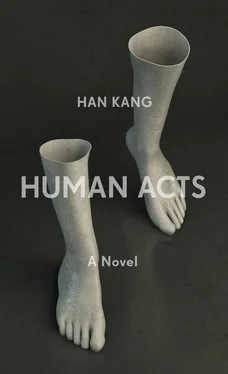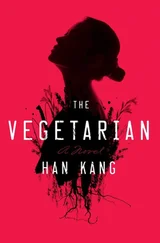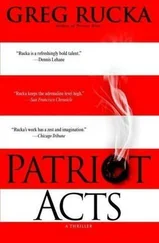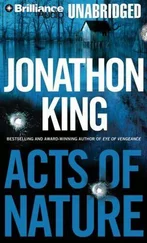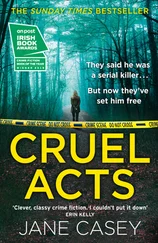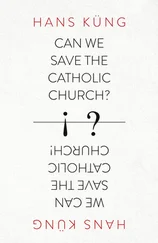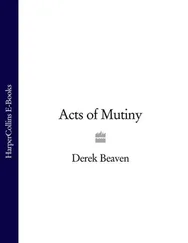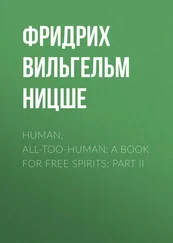Han Kang - Human Acts
Здесь есть возможность читать онлайн «Han Kang - Human Acts» весь текст электронной книги совершенно бесплатно (целиком полную версию без сокращений). В некоторых случаях можно слушать аудио, скачать через торрент в формате fb2 и присутствует краткое содержание. Год выпуска: 2016, Издательство: Portobello Books, Жанр: Современная проза, на английском языке. Описание произведения, (предисловие) а так же отзывы посетителей доступны на портале библиотеки ЛибКат.
- Название:Human Acts
- Автор:
- Издательство:Portobello Books
- Жанр:
- Год:2016
- ISBN:нет данных
- Рейтинг книги:4 / 5. Голосов: 1
-
Избранное:Добавить в избранное
- Отзывы:
-
Ваша оценка:
- 80
- 1
- 2
- 3
- 4
- 5
Human Acts: краткое содержание, описание и аннотация
Предлагаем к чтению аннотацию, описание, краткое содержание или предисловие (зависит от того, что написал сам автор книги «Human Acts»). Если вы не нашли необходимую информацию о книге — напишите в комментариях, мы постараемся отыскать её.
Human Acts
Human Acts — читать онлайн бесплатно полную книгу (весь текст) целиком
Ниже представлен текст книги, разбитый по страницам. Система сохранения места последней прочитанной страницы, позволяет с удобством читать онлайн бесплатно книгу «Human Acts», без необходимости каждый раз заново искать на чём Вы остановились. Поставьте закладку, и сможете в любой момент перейти на страницу, на которой закончили чтение.
Интервал:
Закладка:
You’d come back to me this one time, come back to let your mother catch just a glimpse of you, and this doddery old woman couldn’t even catch you up. An hour I spent searching among the market stalls, down the alleyways, and you weren’t there. My knees were throbbing something awful and I felt dizzy as a whirligig, so I just plumped right down on the ground where I was. But I knew if someone from the neighbourhood saw me there they’d be bound to kick up a fuss, so I pushed myself to my feet even though my head was still swimming.
Following you all the way into the market alleys, I guess I hadn’t realised what a distance I’d come; getting back home was such a slog that my throat was soon parched. Of course, I’d gone and come out without so much as a single coin in my pocket, so all I could think of was to stick my head into the nearest shop and cadge a glass of water. Then again, they might think I was some old beggar-woman come to bother them. So I just had to keep on walking, supporting myself against the wall whenever there was one to hand. I shuffled by the construction site with my hand clamped tightly over my mouth. There was dust flying all over the place, and it set me coughing. How had I not noticed it when I’d gone by in the other direction? Somewhere where there was such an almighty racket as all that, where the road was being carved up.
Last summer the torrential rain made potholes in the alley in front of our house. The kids from the neighbourhood were forever losing their footing there, and if the wheel of a pushchair accidentally went in it was in danger of never coming out again. In the end, the city council sent some people to re-lay the tarmac. This was early September, when some days were still real scorchers. They fetched the boiling tarmac in a wheelbarrow, bubbling like a stew. Poured it down, smoothed it out and gave it a good trampling until it’d firmed up.
On the evening the workmen finally packed up their stuff and left, I thought I’d just go and have a look at it. They’d strung a thin rope barrier around the newly laid tarmac, though, so I kept to the edges and tried to tread as lightly as possible. I could feel my battered old body slowly absorbing its warmth like a tree sucks up water: first my ankles, then my calves, then my aching knee joints. The next morning the rope was gone, so I ventured out onto the surface. It was much warmer in the centre than the edges had been, flooding into me like a wave. I walked right the way up and down the alley after lunch and dinner, and the next morning too. Your elder brother and his wife were down from Seoul, and I could see her wondering what’d got into me. ‘Wouldn’t you like to sit down, Mother?’ she asked. ‘That tarmac must still be awfully hot …’
‘Ah, the cold’s deep in my bones. Do you know how warm this stuff is? It’ll do my joints a world of good.’
Your brother shook his head, murmuring to himself about how something wasn’t right with me. He’d been suggesting I move in with him for a few years now. ‘Where did she run off to?’ I heard him mutter.
The tarmac held its heat for three days straight, but eventually it cooled down. Nothing to feel regretful over there, I knew, but I couldn’t help wishing it’d stayed. All the same, I’d wander out there after lunch to stand on it for a bit and wait. After all , I thought, it might still be just that bit warmer than other places . And if I stood there and kept a good look out, who’s to say I wouldn’t spot you again, striding by like the last time?
I can’t get my head around why I didn’t just call your name that day. Why I just came tottering on behind, struggling for breath and dumb as a mute. If I call your name next time, will you please just turn around? You don’t need to say ‘yes, Mum?’ or anything like that. Just turn round so I can see you.
But it wasn’t really you, was it?
No.
It can’t have been.
I buried you with my own two hands. Removed your PE jacket and your sky-blue tracksuit bottoms, and dressed you in your dark winter uniform, over a white shirt. Tightened your belt just so and put clean grey socks on you. When they put you in a plywood coffin and loaded it up onto the rubbish truck, I said I’d ride at the front to watch over you. I didn’t have a clue where the truck was heading. I was too busy staring back to the rear, to where you were.
Those hundreds of people in their dark clothes looked like ants carrying coffins up the sandy mound. My memory’s hazy, but I can recall your brothers standing there, tears trickling down over lips pressed tight together. The words your father said to me before his death, how stunned he’d been when, instead of crying like all the others, I’d pulled a handful of grass out of the turf they’d removed for the grave, and swallowed it. Swallowed it, sank down to the ground and vomited it back up again then, once it had clawed its way out of me, yanked up another fistful and stuffed it into my mouth. Mind you, I can’t remember any of that myself. The stuff that happened before, before the truck carried us off to the cemetery, that’s clear enough. More than clear enough. How your face looked that last time, right before the lid was put on the coffin. How ashen it was, how haggard. I’d never realised you were so deathly pale.
Later, your middle brother explained that your face was so white because of all the blood you’d lost when they shot you. And that that was why the coffin barely weighed a thing. Not just because you were such a little slip of a thing. Your brother’s own eyes were all bloodshot as he ground the words out. I will pay them back for this evil , he said, and I can tell you that knocked me for six. What are you talking about? I demanded. How could it ever be possible to ‘pay back’ the evil of the country murdering your brother? If anything were to happen to you, I wouldn’t be long for this world.
And even now thirty years have gone by, on the anniversaries of your and your father’s death, I find myself troubled when I watch your brother straighten up after bowing over the offerings. The thin line of his lips, the stoop of his shoulders, the flecks of white in his hair. It’s the soldiers, not him, that your death should have weighed on, so why did he grow so old before his time, so much quicker than all his friends? Is he still troubled by thoughts of revenge? Whenever I think this, my heart sinks.
*
Your eldest brother’s quite the opposite, always sure to keep a smile on his face, and never a hint of anything else. Twice a month he comes down to visit, to slip me a little something for the housekeeping and make sure I’m all set up for meals. Then he’s back up to Seoul the very same day, so his wife will never even know he was gone. Your middle brother lives practically round the corner, but the eldest has always been kindly by nature.
You, your father and your eldest brother are all cut from the same cloth, you know. Your long waist and sloping shoulders are a family trait. As for your ever-so-slightly elongated eyes, your square front teeth, you were a carbon copy of your brother. Even now, when he laughs and reveals those two front teeth, broad and flat as a rabbit’s, the look of youthful innocence they give him clashes with the lines etched deeply around his eyes.
Your eldest brother was eleven when you were born. He turned into a teenage girl around you, running home as soon as school was out so he could dandle you on his knee. He cooed over your pretty smile, supported your neck with tender care while he held you in his arms, and rocked you back and forth until you gurgled with delight. After you’d passed your first birthday and he could carry you on his back in a sling, he’d strap you on and proceed to stride around the yard, singing painfully out of tune.
Читать дальшеИнтервал:
Закладка:
Похожие книги на «Human Acts»
Представляем Вашему вниманию похожие книги на «Human Acts» списком для выбора. Мы отобрали схожую по названию и смыслу литературу в надежде предоставить читателям больше вариантов отыскать новые, интересные, ещё непрочитанные произведения.
Обсуждение, отзывы о книге «Human Acts» и просто собственные мнения читателей. Оставьте ваши комментарии, напишите, что Вы думаете о произведении, его смысле или главных героях. Укажите что конкретно понравилось, а что нет, и почему Вы так считаете.
